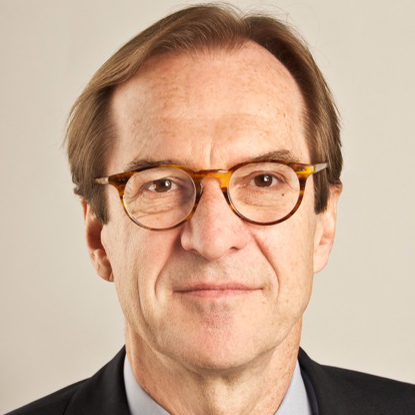VOA Director Condemns Iranian Satellite Jamming

 Washington, D.C. — VOA Director David Ensor has condemned Iranian satellite jamming in a new blog posted on the Voice of America Public Relations webpage, www.insidevoa.com.
Washington, D.C. — VOA Director David Ensor has condemned Iranian satellite jamming in a new blog posted on the Voice of America Public Relations webpage, www.insidevoa.com.
From the VOA Director:
Satellites are extraordinary devices, hovering quietly above the earth, beaming everyone’s favorite TV shows into living rooms around the world.
Satellites are one of the things I think about when I hear the term “global village.” It’s technology that makes it possible to instantly share information and ideas.
We’ve come to depend on satellites to experience the great events of our time. Whether it’s the opening ceremony of the international Olympic Games or live video of the devastating earthquake and tsunami that rocked Japan last year, satellites bring us together.
Unfortunately, some governments have decided they want to try to block this flow of information.
Since September, the Iranian government has radically increased its deliberate interference with satellites, a practice we all know as jamming. It works like this. Iran sends a bogus signal to a satellite, which overwhelms the legitimate signal and renders it useless to TV and radio audiences on the ground.
VOA’s Persian broadcasts have been a particular target. In fact, the satirical VOA Persian program, Parazit, is a play on words that makes fun of this practice. Parazit, which means static in Persian, is what many Iranians sometimes see when they try to watch this popular program.
Other international broadcasters including BBC and BBC Persian TV, Radio Free Europe/Radio Liberty’s Radio Farda, Radio France International, Germany’s Deutsche Welle and Radio Netherlands Worldwide have all suffered from radio, TV or web interference by Iran.
This week in Geneva, delegates to the World Radiocommunication Conference (WRC) begin a series of meetings that only come along once every four years. Satellite jamming is likely to be on the agenda at this important session in one form or another.
For VOA and other international broadcasters, it can’t come a moment too soon. Satellites form the critical backbone of our ability to reach our audience.
It is however, much more than a broadcast industry issue. It goes to the very heart of the United Nations’ Universal Declaration of Human Rights, which states: “Everyone has the right to freedom of opinion and expression; this right includes freedom to hold opinions without interference and to seek, receive and impart information and ideas through any media and regardless of frontiers.”
That language couldn’t be clearer, and it is part and parcel of everything we do at the Voice of America. By jamming satellites, Iran is limiting a fundamental human right of its own citizens.
Unfortunately, jamming by Iran has increased. Worse, the practice seems to be spreading, with new reports of jamming by Syria, one of Iran’s few allies, and a regime increasingly at war with its own people.
VOA and other international broadcasters and organizations have been drawing attention to this issue at every opportunity. The WRC is one forum where governments, regulatory authorities and broadcasters from across the world can become more aware of this insidious problem, and act against it.
On January 24th, five of the world’s largest international broadcasting organizations, including the Voice of America’s parent organization, the Broadcasting Board of Governors, called on delegates meeting in Geneva to address the problem of Iranian uplink jamming.
The statement, issued by the Directors General of the British Broadcasting Corporation, Deutsche Welle, Audiovisuel Extérieur de la France, Radio Netherlands Worldwide and the U.S. Broadcasting Board of Governors, appeals to member states to “work to end this increasingly prevalent practice.” Other organizations, including the Paris-based Reporters Without Borders, have urged delegates meeting in Geneva to act urgently.
Censorship and satellite jamming violate the fundamental right of access to the free flow of information enshrined in the Universal Declaration of Human Rights, and countries around the world should join together to end this practice.
David Ensor
For more information contact Kyle King at the VOA Public Relations office in Washington at kking@voanews.com. Visit our main website at www.voanews.com.
The Voice of America is a multimedia international broadcasting service funded by the U.S. government through the Broadcasting Board of Governors. VOA broadcasts approximately 1,500 hours of news, information, educational, and cultural programming every week to an estimated worldwide audience of more than 141 million people. Programs are produced in 43 languages and are intended exclusively for audiences outside of the United States.
For more information, please call VOA Public Relations at (202) 203-4959, or e-mail us at askvoa@voanews.com. Follow us on Twitter @VOABuzz and Facebook at InsideVOA.

